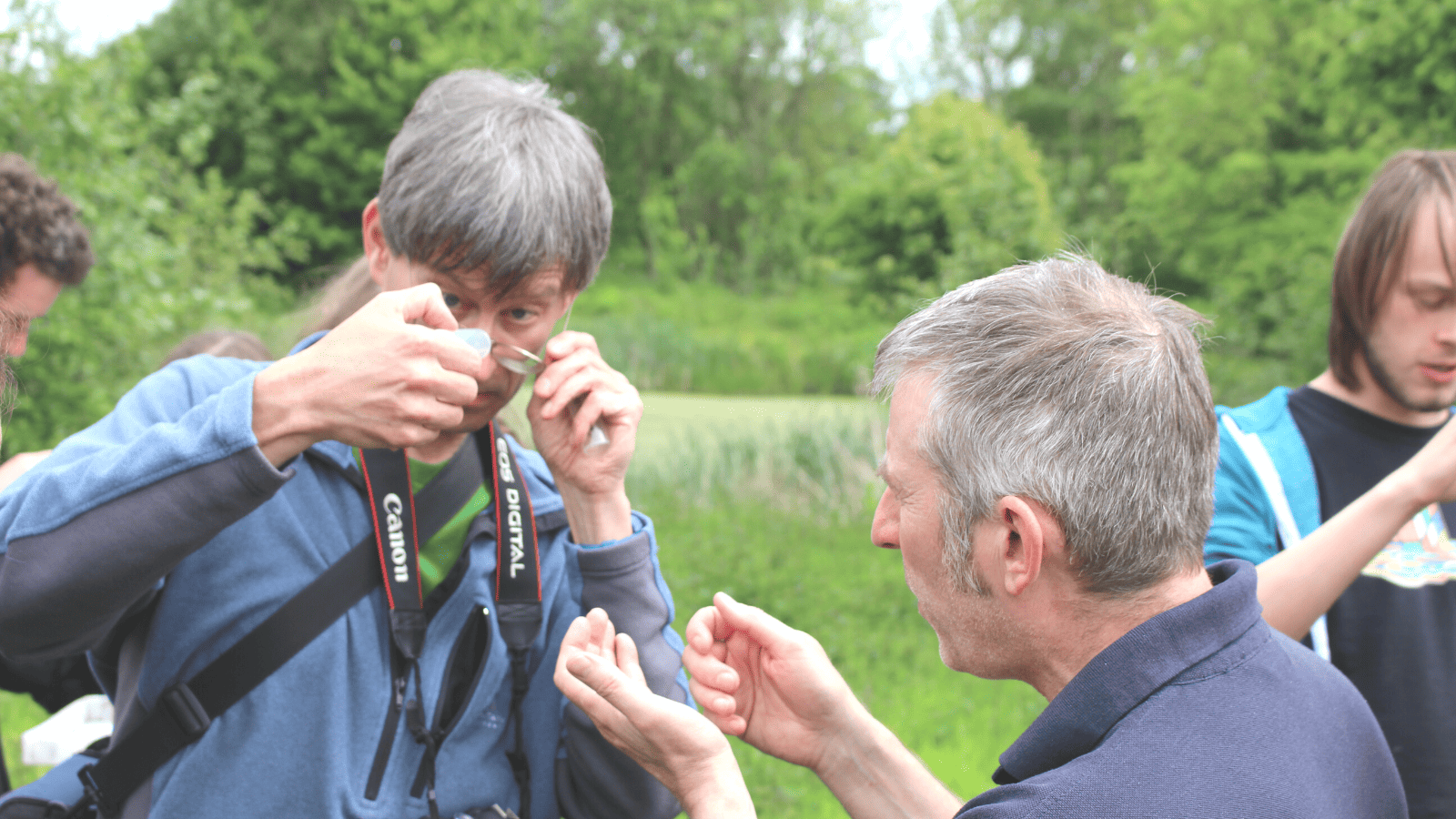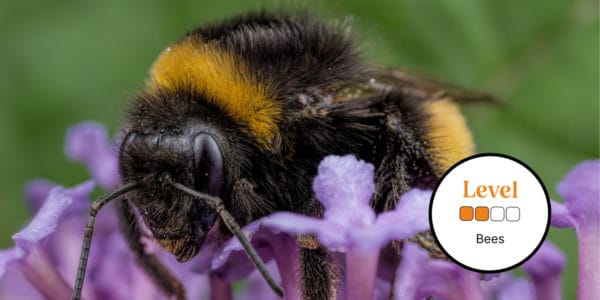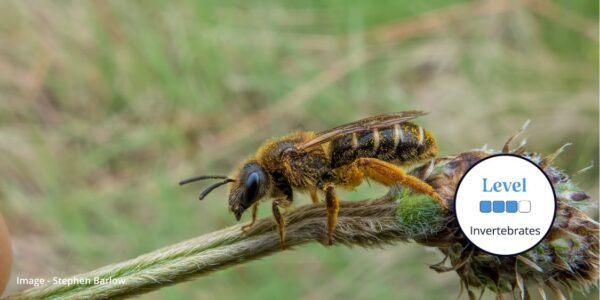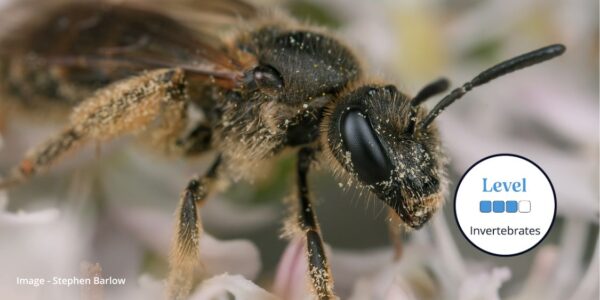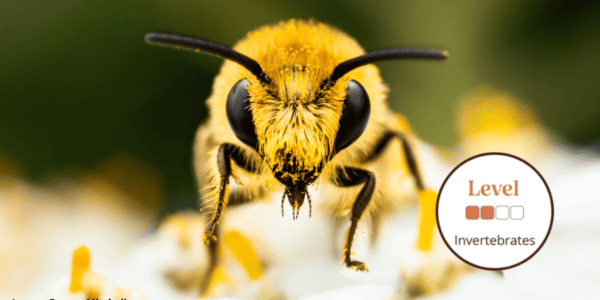Peter Chandler, author of the new 2022 RES handbook on the Mycetophilinae, will be tutoring the course. It will cover the whole of the British fungus gnat fauna, comprising 574 species from 5 families: Bolitophilidae, Diadocidiidae, Ditomyiidae, Keroplatidae and Mycetophilidae, with the majority (501 species) in the Mycetophilidae.
The new RES handbook contains keys to the subfamilies of the Mycetophilidae, as well as keys to the tribes, genera, and species within the Mycetophilinae subfamily (334 species). Anyone planning on attending the course will need access to a copy of the new handbook. In addition, handouts will include new keys to the remaining subfamilies of Mycetophilidae, and to the members of the other fungus gnat families. Attendees should also download a copy of the previous 1980 RES handbook to the Mycetophilidae by Hutson et al, available free from the RES website. This 1980 volume covered everything except the Mycetophilinae.
Despite their general ubiquity, and the fact they form an important part of the Dipterous fauna of many habitats, much remains to be discovered about the fungus gnats, with plenty of scope for new observations. There are few records on adult behaviour, and the larval biology of around half the UK fauna remains unknown. Aside from the obvious larval associations with fungal fruiting bodies, there are species that develop in rotten wood, bryophytes, bird’s nest and in caves. Some Keroplatidae even have predatory web-spinning larvae. Adults are found, often in large numbers, in moist dark places, and generally associated with woodland habitats. They are one of the groups of Diptera that can be found throughout the year, and with a second abundance peak in the autumn, coinciding with the emergence of fungal fruiting bodies, they are a dominant part of the late-season fauna. Adults of several British species have also been recorded hibernating during winter inside caves.
The course is a great opportunity to get to grips with this difficult and diverse group. A group with a fascinating ecology, and one we all encounter on a regular basis in our samples.
The Dipterists Forum – Society for the study of flies (Diptera)
Affiliated to the British Entomological and Natural History Society (BENHS)
The Dipterists Forum was established to encourage and support all aspects of the study of flies, such as their identification, taxonomy, behaviour, ecology, recording and conservation. Each spring a workshop is held at Preston Montford to train people in the identification and biology of a selected fly group.
The Forum offers a small number of bursaries for this event, awarded on a competitive basis. Each bursary covers half the total cost including accommodation costs. If you would like to apply for a bursary, please see the details on the Forum website https://www.dipterists.org.uk/bursaries.
Tutor: Peter Chandler
In addition to writing the 2022 RES handbook on the Mycetophilinae, Peter has been editor of the Dipterists Digest journal since 1998 and manages and updates the official checklist of British and Irish Diptera. Peter edited A Dipterist’s Handbook and authored a book on The Flat-footed Flies (Diptera: Opetiidae and Platypezidae) of Europe. He has also written numerous papers on Diptera, many relating to species associated with fungi. Peter has previously tutored at Preston Montford, delivering a workshop on fungus gnats and flat-footed flies, and one on Drosophilidae.
Example Timetable
Friday evening
Arrive in time for dinner. Introductory lecture on the Ecology of the group, with tips for collecting and studying fungus gnats.
Saturday
Presentations giving an overview of the fauna and key taxonomic features will take place an hour after breakfast and after lunch. The rest of the day will be given over to practical identification of specimens.
Sunday
Practical identification of specimens.
What's Included
Before You Attend
What to Bring
- A binocular microscope and light source (if you do not have your own please ask to borrow this equipment from Preston Montford prior to the workshop).
- Equipment for handling specimens such as forceps, pieces of plastazote, pins for fixing notes etc.
- Specimens collected by yourself for identification.
- Pen and paper for note taking.
- A USB memory stick or flash drive could be useful.
Essential Reading
- Attendees will need access to a copy of the new 2022 RES handbook to the Mycetophilidae by Peter Chandler.
- Attendees should also download a copy of the previous 1980 RES handbook to the Mycetophilidae by Hutson et al, available free from the RES website. This 1980 volume covered everything except the Mycetophilinae.
In addition, during the workshop, attendees will be provided with new draft keys to UK fungus gnat groups not covered in the 2022 RES handbook.
Sorry this course has ended

